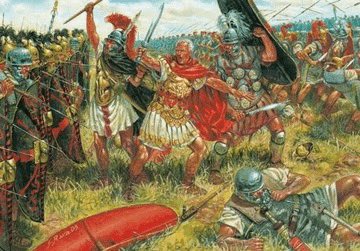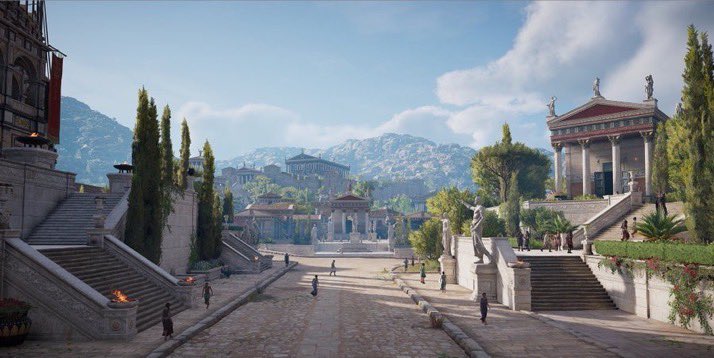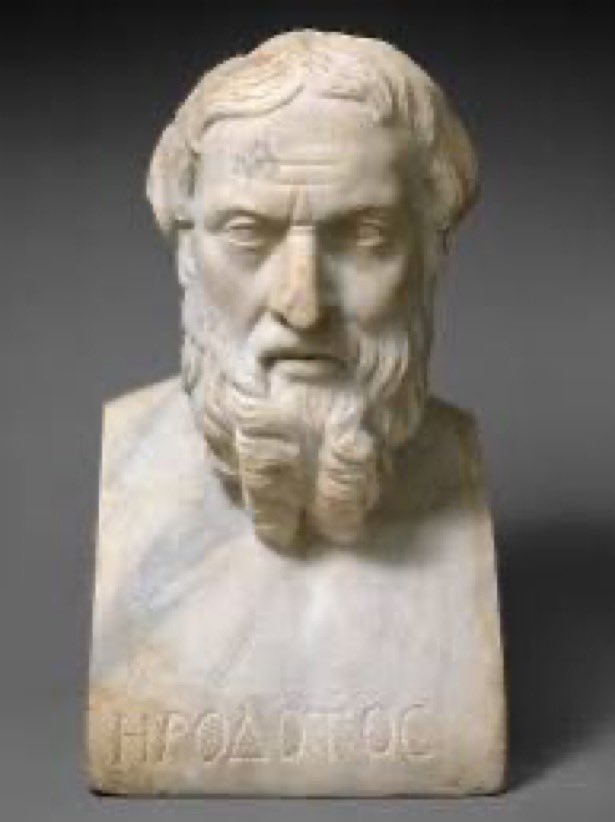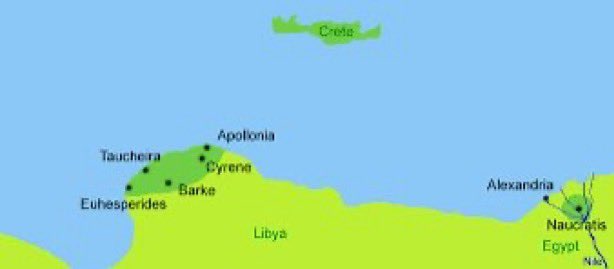In 46 BC, Julius Caesar would set out on an expedition in North Africa to finish off his remaining foes in the region, opening a new front in his civil war.
This is a thread on the battle of Thapsus!
This is a thread on the battle of Thapsus!

By the end of 47 BC, Julius Caesar was in the strongest position he’d been in years. His main rival Pompey was dead, he’d survived an adventure in Egypt with his client (and lover) Cleopatra and taken the big prize of Rome, implementing numerous reforms incl the introduction of a new calendar. Things looked good, but the optimates he was fighting were down but not out and had regrouped in North Africa.

By now the optimates were composed of a number of people from Rome’s leading famiiies. Titus Labienus, who had fought for Caesar in the Gallic wars but defected at the onset of the civil war, was one of their commanders, as well as Mettellus Scipo from the famed Scipii family. Allied with them was king Juba of Numidia, who bore a personal grudge against Caesar for grabbing his beard in a heated debate years prior. Not one to underestimate his opponents, Caesar set out to combat this force in late December of 47 BC.

At first it seemed it would be a relatively easy campaign, as Caesar took a large force of his own with him, some six legions (likely 20,000 or so men). Unfortunately, a major storm disrupted the fleet after it set sail for North Africa, and when he arrived it had been reduced to 3000 infantry and 150 Calvary, far smaller numbers than that of the optimates. Not one to despair, Caesar unsuccessfully attempted to persuaded the nearby city of Hadrentum to surrender to him but then marched south to the city of Ruspina, where he reunited with some of the other forces scattered during the storm, increasing his army to about 9000 strong, and fought a battle with an optimate force led by Labienus. Caesar won, not overwhelmingly, but enough to keep his force going for the time being.

Caesar continued to march and reached Thapsus (120 miles from Carthage) in February, promptly laying siege to the city. Most of his army had reunited by now, and he had recruited several new legions so likely had 60,000 men by this stage. The main optimate army, commanded by Scipio, approached and reached Caeasr in early April. They likely had a similar number of legionaries, but were bolstered by their Numidian allies as well as Calvary and some 60 elephants (split into two units), nearing 100,000 men in total.

Scipio aligned his forces with the elephants at the front, likely hoping they would be able to trample Caesar’s forces and win the battle quickly. Caesar positioned himself at the right of his army, where his archers began to target and harass the elephants, sending them into a panic and causing many to retreat into their own force. The remaining elephants were sent to attack Caesar’s left flank but his cohorts held their ground, and targeted their javelins at the elephants eyes, driving them crazy.

The remaining elephants also retreated into the optimate force, causing it to begin to disintegrate. The force in Thapsus, seeing the disaster that was unraveling, sallied forth but it was too little too late and they were routed by the legions Caesar had left to watch the city. The Numidian force led by Juba by now realised the battle was lost and decided to withdraw to save their skin. Caesars force reached the optimate camp which they promptly plundered.

According to Plutarch, the optimates lost over 10,000 men in the battle while Caesar lost barely 50. While this may be an exaggeration of the battle’s one-sidedness it is clear who the decisive victor was. Plutarch also says Caesar had a fit (believed by many to be epliepsy) after the battle and had to retire quickly. This was bad news for the remaining optimates, many of whom were massacred while trying to surrender, contrary to Caesar’s usual approach of granting mercy to defeated Romans.

The defeat of the optimates effectively meant the end of their presence in North Africa. A wave of suicides by their leadership followed, including Scipio, Cato the younger (who not being a military man didn’t take part in the battle itself but gave his full moral support) and Juba (who went down in a suicide pact where he had a duel with the optimate Petrieus). The only significant survivor was Labienus, who fled to Spain where he allied with Pompey’s two sons. Caesar would subsequently defeat them at Munda a year later.

• • •
Missing some Tweet in this thread? You can try to
force a refresh






















